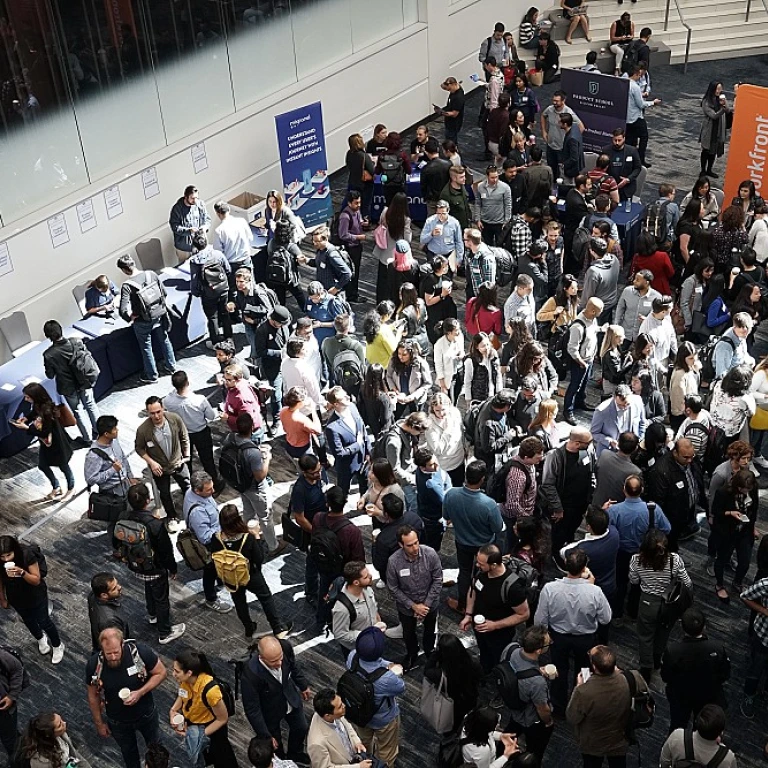The Role of AI in Modern Hiring
Embracing Intelligent Systems for Recruitment
The modern hiring landscape is rapidly evolving, with companies increasingly turning to intelligent systems to enhance their recruitment processes. Artificial intelligence (AI) has become a game-changer in this domain, providing organizations with tools that streamline various aspects of hiring, from sourcing candidates to making strategic decisions. AI-driven technologies help automate routine tasks that previously consumed significant recruiter time, allowing them to focus more on strategic activities. By handling tasks such as resume screening and scheduling interviews, AI enables recruiters to operate more efficiently and effectively.Integrating CRM Systems with AI Solutions
Combining AI with customer relationship management (CRM) systems is another way businesses can enhance their talent acquisition strategies. CRM tools, when integrated with AI technologies, offer a more comprehensive solution for managing candidate relationships. Organizations harness these systems to develop a richer database of potential candidates and maintain ongoing engagement. This integration not only improves the process of tracking and managing applications but also allows recruiters to build stronger talent pipelines. For more insights on leveraging CRM for effective talent acquisition, visit our blog on leveraging CRM for effective talent acquisition.Creating More Space for Recruiter Insight
By reducing the workload associated with routine administrative tasks, AI provides recruiters with more time and resources to nurture candidate relationships and make insightful hiring decisions. The focus can shift towards understanding candidate motivations and cultural fit within the organization, aspects that AI currently supports but does not replace. These advancements not only change the way recruitment is conducted but also place a stronger emphasis on strategic decision-making and relationship building, ensuring that organizations are not just filling positions but attracting the best talent possible.Data-Driven Approaches to Recruitment
Harnessing the Power of Data in Recruitment
In an era where decisions are increasingly driven by metrics, utilizing data analytics in recruitment is both a necessity and a transformative approach. AI-powered tools offer a myriad of opportunities for companies to streamline their hiring processes effectively. Here's how data-driven strategies are enhancing recruitment efficiency:- Predictive Analytics: By analyzing trends and patterns, AI can forecast future hiring needs and identify potential skill gaps in your workforce. This allows you to proactively fill positions before they become critical.
- Candidate Selection: AI algorithms can sort through vast amounts of applicant data, highlighting candidates whose profiles match best with the job requirements. This speeds up the initial screening process, reducing time-to-hire and allowing recruiters to focus on high-potential candidates.
- Performance Metrics: By tracking the performance of hires, companies can refine their recruitment criteria and streamline the hiring process further. This feedback loop enhances the quality of future hires by continuously improving selection standards.
Improving Candidate Experience with AI
Enhancing the Hiring Experience for Talent
The integration of AI in recruitment not only benefits employers but also significantly enhances the experience for candidates. By automating mundane tasks and optimizing communication, AI ensures that candidates have a smoother, more efficient journey through the hiring process.- Efficient Communication: AI-driven chatbots can manage communication seamlessly. They provide candidates with instant responses to inquiries about job postings, application statuses, or interview scheduling. This immediacy ensures candidates remain engaged and informed, reducing the frustration of long wait times.
- Personalized Interactions: AI tools analyze a candidate's data to offer personalized job recommendations. Tailoring information in such a way aligns roles with candidates' profiles, increasing the likelihood of a successful match and providing a more personal touch to the recruiting process.
- Streamlined Processes: By leveraging AI in applicant tracking systems, repetitive administrative tasks are eliminated. This streamlining allows recruiters more time to engage in meaningful interactions with candidates, further enhancing the overall experience.
- Feedback and Transparency: AI can also play a crucial role in providing timely feedback to candidates. With AI systems, companies can ensure that all participants in the hiring process receive constructive feedback, thus maintaining transparency and fostering a positive employer brand.
- Accessibility: AI tools can be programmed to accommodate various languages and accessibility needs, making the hiring process more inclusive. This commitment to accessibility encourages a diverse range of applicants and ensures that all candidates feel valued.
Overcoming Bias in the Recruitment Process
Addressing Unconscious Bias with AI
Leveraging AI in the recruitment process presents a significant opportunity to address unconscious biases, which can often influence human decision-making. Traditional hiring practices, albeit unintentionally, can sometimes favor certain demographics over others. AI systems can be trained to evaluate candidates based on objective criteria, such as skills and experience, rather than variables that might contribute to bias.Ensuring Ethical AI Use in Recruitment
While AI can help mitigate unconscious bias, it's essential to approach its use ethically. Organizations must ensure that AI algorithms are trained on diverse datasets to avoid embedding inherent biases from the data itself. Regular audits of AI tools should be conducted to evaluate their performance and fairness, and adjustments should be made as necessary to maintain ethical standards.Training and Awareness for Hiring Teams
Combining AI with comprehensive training programs for hiring teams can further reduce biases in the recruitment process. Educating team members on how biases can manifest, both consciously and subconsciously, ensures a more inclusive and fair approach to hiring. Together with AI, informed and aware hiring professionals can create a more balanced candidate evaluation process.AI Tools for Smarter Hiring Decisions
AI-Powered Insights for Better Hiring Decisions
Artificial intelligence is revolutionizing the way we make hiring decisions by offering unparalleled insights into potential candidates. These AI tools utilize enormous datasets to evaluate skills, experience, and suitability for the role, making the hiring process not only faster but also more effective.
One significant advantage of AI in recruiting is the ability to analyze resumes at lightning speed. AI can instantly process applications, identifying key attributes and matching them with job requirements. This helps recruiters shortlist the most promising candidates without spending countless hours on manual reviews.
Predictive Analytics in Recruitment
Predictive analytics, a subset of AI, is becoming an essential tool in the talent acquisition toolkit. By analyzing historical data, predictive analytics can forecast future hiring needs and identify candidates who are more likely to succeed and stay with the company long-term. This data-driven approach is a game-changer in shaping talent acquisition strategies, removing much of the guesswork involved in choosing the right candidate.
Enhancing Interviews with AI
AI tools are also transforming the interview process. Some systems are capable of conducting initial interview screenings, asking standard questions, and providing a preliminary assessment of the candidate's responses. This not only speeds up the process but also allows human recruiters to concentrate on more nuanced evaluations when they interact with candidates face-to-face.
AI and Decision-Making Transparency
AI tools provide a level of transparency and analysis that traditional methods often lack. Recruiters can use these insights to justify their hiring decisions, supported by data and clear metrics. This transparency is crucial for maintaining fairness and accountability in the hiring process, ultimately leading to better outcomes for both employers and candidates.
Real-World Examples of AI in Action
Practical Applications of AI in Recruitment
In today's recruitment landscape, practical applications of artificial intelligence are proving invaluable across various industries. Companies are increasingly utilizing AI-powered tools to streamline their hiring processes, automate repetitive tasks, and make more informed decisions about potential hires.
Chatbots for Initial Candidate Screening
One of the most prevalent uses of AI in recruitment is through chatbots that facilitate initial candidate screening. These AI-driven programs engage with applicants in real-time, asking pertinent questions and compiling crucial data. This approach not only speeds up the preliminary evaluation process but also ensures a more consistent and unbiased assessment of candidates.
Predictive Analytics and Job Matching
Another innovative application of AI within recruitment is predictive analytics for job matching. By analyzing historical data and current market trends, AI systems can predict candidate fit and potential performance with remarkable accuracy. This data-driven approach helps recruiters identify the best talent, enhancing the overall quality of hires.
Virtual Assessments and Interviews
The evolution of virtual assessments and interviews is another area where AI is making a significant impact. Advanced algorithms can evaluate candidate responses, body language, and communication skills during interviews, providing recruiters with deeper insights into each applicant's capabilities. This not only enhances the selection process but also reduces the chances of human bias.
Real-Time, Data-Driven Feedback
Finally, AI facilitates real-time, data-driven feedback, which is essential for optimizing recruitment strategies continuously. Through comprehensive analytics, organizations can pinpoint areas for improvement, adapt their approaches swiftly, and ensure a seamless candidate experience.
AI's influence on recruitment extends beyond these applications, continually reshaping how companies approach and execute their talent acquisition strategies. As discussed in earlier sections of this series, the integration of AI brings numerous advantages, including enhanced decision-making and smarter recruitment practices.








